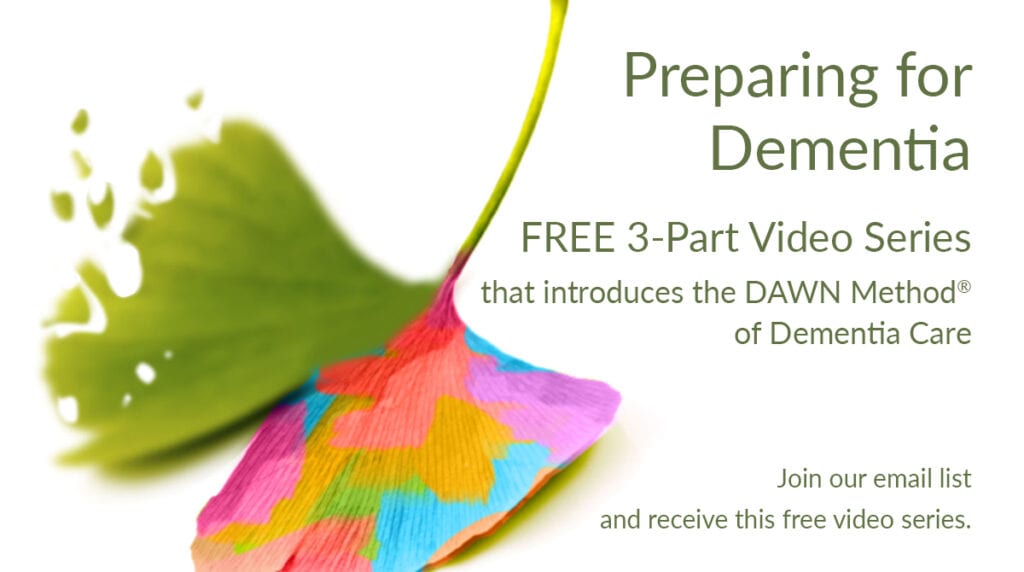We can become storytellers for our loved ones who have dementia—recounting happy memories for them. When we do this we give them a valuable gift: an experience in the present of whom we know them to be, even though they cannot recall their own pasts. There is great comfort in knowing that you have experienced good times in the past, especially with someone who happily recounts them for you.
We can help our loved ones experiencing dementia retain a sense of self in other ways as well. We also enhance their sense of self when we accept what they say as valid, without judgment or correction.
Listen. Truly listen.
What does it mean to listen when the speaker has dementia? Someone experiencing dementia is losing rational thought but not intuitive thought. This means that their skills at reading facial expressions, body language and intonation remain intact, while their ability to interpret meaning from words and syntax is fading. This makes eye contact and nonverbal communication more important than usual.
Be careful that you are truly paying attention. Preoccupation, worry, or impatience is easily read in expression and posture. Even when our clients or loved ones lose vocabulary and become unable to form sentences, they continue to be able to read and interpret our nonverbal signals. And, without rational thought or memory, they are not able to assume reasons beyond the present for our preoccupation or worry. They can’t help but take our moods personally.
Allow pauses to happen
When someone is gradually losing vocabulary and the ability to organize words into logical sentences, more and more time is needed to find words that accurately express what she or he wants to say.
In the earlier stages of memory and language loss, it’s kind to allow pauses as your loved one searches for the needed words. As time goes on they will be less successful at finding the right words and it becomes kinder to offer suggestions. Eventually, it becomes difficult to interpret what someone with dementia is trying to say. At that point, we need to become careful and attentive observers—looking for intention and needs in the situation and surroundings.
Hear feelings, not words
When a baby begins to experiment with language, the entire family welcomes its efforts and enthusiastically searches for meaning in mispronounced and misused words. We should do the same for our loved ones who are experiencing dementia. Their feelings and intentions remain intact, hidden behind failing vocabulary and syntax. Just because someone cannot remember the word for pain does not mean she or he is not feeling it.
Truly listening to our loved ones even though their ability to use language is failing is essential to helping them retain a sense of self, despite dementia.
§
Sign up for our newsletter and free video series
Sign up for our monthly newsletter and get more advice on how to help someone experiencing dementia. As a bonus, you’ll get our free video series, “Preparing for Dementia.”


